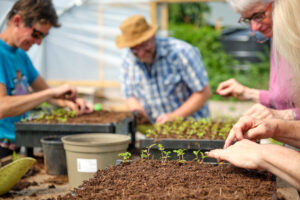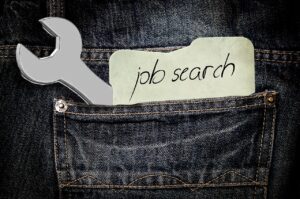A co-operative approach to renewable energy
 The city of Brighton and Hove is famed for its sunny beaches, colourful nightlife and progressive politics, but can it become a hotbed for renewable energy as well?
The city of Brighton and Hove is famed for its sunny beaches, colourful nightlife and progressive politics, but can it become a hotbed for renewable energy as well?
Over the last few years, Brighton and Hove Energy Services Co-Op has helped more than 1,000 residents collectively save more than £52,000 on their energy bills.
New Start spoke to the co-operative’s founder and chief executive, Kayla Ente about its work and how it has adapted to recent changes in the energy sector.
Can you tell me about the history of about the co-operative?
We formed the co-operative in 2013. Originally, I had tried to do a similar model in London and I was working as a consultant for the South East England Development Authority (SEEDA). I could not get this model working in London, because it did not have the community cohesion that was needed in order to make it work, so I thought I will move down to Brighton because I have a great network down here already.
In the beginning, it was just me working here. I wanted to be technology agnostic. I did not want to just put solar PV on roofs. I wanted to focus on heat because heat is one of the biggest problems both for the environment and for people. The first project was a biomass heating project on a network of four buildings. We’ve done 28 projects since then. They are all on a ‘pay-as-you-save model’, which is designed so the customer pays us back for the upfront investment through the savings in their energy bills. It has worked really well.
How many projects have you got on the go right now?
We have 10 or 11 projects that we are working on at the moment. One is at the Spire in Brighton, which is a venue for the Brighton Festival. We have done a lot of work on church buildings before because they are quite difficult to heat. We did a lot of work on the One Church building here in Brighton, which is a frequently-used community centre.
Is Brighton and Hove a more fertile area for renewable energy projects?
The community is more together here. The community and voluntary sector work together quite well. We promote each other and we work together very well. That works well for us in getting our name around. And we also work with other community energy groups. For example in Worthing, we are working with Transition Town Worthing to help them get their first projects going.
What do you consider is your biggest achievement so far?
We did solar PV on the Montessori Place School with underfloor heating, insulation and an air-source heat pump. We insulated the building, so it retains the heat and the air source heat pump does not have to work quite so hard. It’s probably the best project we’ve done so far.
But I would say the thing I’m proudest of is our business model, and the fact we make these technologies accessible to everyone.
Our biggest mission now is to get the word out and help people understand we are a not-for-profit cooperative and we’re here to help people transition from fossil fuels. It’s important that people become more energy independent and they are not dependent on energy suppliers, because prices are consistently going up. The best way to combat that is to take control of your own supply. We are a vehicle to help people do that.
There are a lot of smart and renewable energy systems on the market at the moment, but it is often argued they are mostly bought by people who are already engaged about energy. How do you reach people who are traditionally harder to engage with and persuade them that renewable energy can cut their bills?
People think it’s too good to be true. They can’t imagine there is a company that does not care about optimising projects and cares about the customer and providing a service. I set it up like this on purpose, because I want to show people there is another way of doing things. I hope the co-operative model demonstrates there is another way of doing business.
It’s like any other technology. If you don’t understand it, then it’s intimating. That’s another reason why we set up the co-operative. We want to support people and take away the technology and finance barriers.
The last few years have seen big changes for the renewables industry, with the cuts to the Feed-in-Tariffs and other allowances. How has that impacted your business case?
We’ve had to lengthen the term of our agreements in order to get the return that we need on the projects in order to pay our costs and our members for their investment. In a way, the general market perception that solar PV is not affordable or beneficial has affected us. We have found ways around that, but I’m not sure people understand that.
What would you say to local authorities that are looking to renewable energy?
Partner with us! They have access to low-interest funding. We have the technological and project-management expertise. I know a few local authorities have figured out that renewable energy will generate income for them and they are looking at using capital funds to invest in installations. But time after time, they do not do it efficiently and it ends up more of a cost than a benefit for them.
If they were really wise, they would work for their local community energy groups, make the funding available and then they would take their return from a fixed income.
To find out more, visit the co-operative’s website here.















